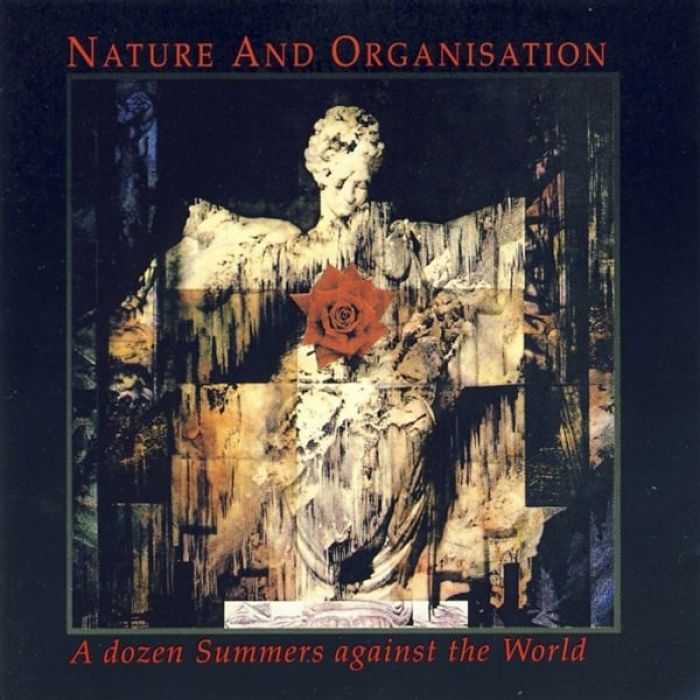A Dozen Summers Against the World by Nature and Organisation (Review)

This is yet another band that I’ve been wanting to check out for awhile (trust me, that list is quite long). Ever since I was introduced to Current 93 and The Revolutionary Army of the Infant Jesus a few years ago, I’ve been intrigued by the whole “apocalyptic folk” genre. I found this 4 song EP at a record store and I decided to take a chance. I’m quite glad I did.
Each song on here is incredible. The album opens with “Wicker Man Song.” It starts with acoustic guitar which is joined by violin, bells, and flute — all playing a beautiful and somewhat melancholy melody. Rose McDowall’s vocals are incredible, just one step below airy and ethereal, which adds to the earthiness and folkiness of this track. It vaguely reminds me of some of the Revolutionary Army of the Infant Jesus’ material.
The next two tracks, “Blood of Solitude I” and “Blood of Solitude II,” are instrumental string arrangements that just flow easily together. My only complaint is that they are two short. Both are less than 2 minutes long, but each could easily have been made much, much longer and not have suffered one bit.
The final track is “A Dozen Winters Of Loneliness.” Never mind the title. This track, for the most part, is excellent (one thing I’ve noticed about “apocalyptic folk” artists is their love for overly dramatic band names and album and song titles — go figure).
“A Dozen Winters Of Loneliness” opens with a vocal loop of a women repeating the word “loneliness.” Rather than grate, this adds a certain rhythmic quality to the song. David Tibet (Current 93 — one of the godfathers of the whole “apocalyptic folk” thing) recites some poetry over a shortwave radio set which seems to revolve around the phrases “A dozen winters of loneliness” and “A dozen summers against the world.” The instrumentation consists of guitars, strings, and tubular bells.
Unfortunately, this track descends into some electric guitar and drum assault that basically sounds like a heavy metal band warming up. It’s a pity, because the track could’ve done without it quite nicely.
After that is a humorous recording of some old country tune singing about geisha girls. It sounds slightly out of place compared to the somber nature of the rest of the music on this thing, but that’s not a bad thing.
This EP really makes me want to hear more of this band. I’ll need to get their full-length as soon as possible.